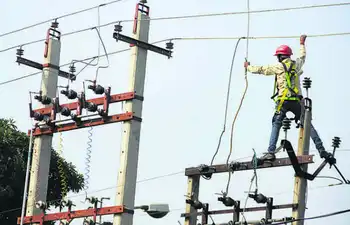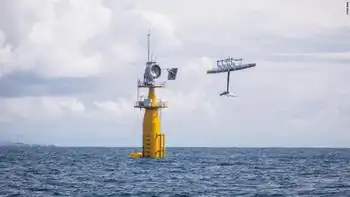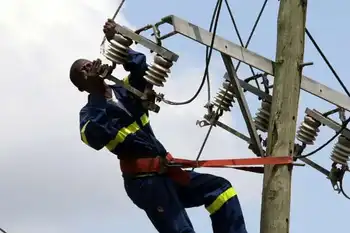Budget earmarks clean-power dollars to Saskatchewan
By Globe and Mail
Protective Relay Training - Basic
Our customized live online or in‑person group training can be delivered to your staff at your location.

- Live Online
- 12 hours Instructor-led
- Group Training Available
The Saskatchewan project is the signature investment of the government's budget effort to reduce greenhouse gas emissions blamed for climate change. The project would be the largest carbon capture and storage project in Canada, with a price tag of $3.8-billion for the 450-megawatt power plant. Power companies in Alberta and Nova Scotia, which rely heavily on coal, will be watching it closely.
The federal-provincial project - as well as financing for a proposed carbon pipeline in Alberta - signals mainstream support for carbon sequestration, a technology that until recently was relegated to the fringes of the climate change debate.
However, the technology still requires enormous upfront spending to capture the carbon dioxide emissions from industrial sources like power plants and oil sands upgraders, and government advisory panels have warned it is unlikely to be widely adopted until companies face stiff emission targets.
Ottawa is also encouraging the auto industry to invest in emissions-reducing technology by providing $250-million over five years to support research and development, and maintain Canadian jobs in the sector.
And it will spend $66-million over the next two years to develop the regulatory framework that will underpin a carbon emissions trading market in Canada. Finance Canada officials said the regulations will require companies to certify their carbon emissions and will validate emissions-reduction projects known as offsets that can be purchased by companies who can't otherwise meet their targets.
The Harper government has clearly identified carbon capture and storage as a key plank in a climate change effort that opposition parties and environmentalists have criticized as too lax.
"Carbon capture and storage presents an opportunity for Canada to develop world-leading technology that can significantly reduce greenhouse gas emissions," the government said in its budget document.
SaskPower, the provincially owned utility, has for years been considering constructing such a clean-coal power plant close to the oil fields of southern Saskatchewan, where the captured carbon dioxide can be used to enhance crude production.
Last summer, the utility announced it would proceed with several other projects to meet growing demand. It shelved the coal project because the estimated construction costs for the clean-coal plant had escalated too rapidly.
Since then, Saskatchewan has elected a new small-c conservative government that has improved relations with Ottawa after its battles with the previous NDP government.
In his budget, Finance Minister Jim Flaherty said the province is expected to match the federal funding for the coal project, which would be a commercial-scale demonstration project. SaskPower would be responsible for financing the balance of the cost.
Mr. Flaherty also announced new tax incentives for the oil and power sectors in Alberta to build a carbon capture and storage pipeline that could collect carbon dioxide at oil sands plants and power stations, and then deliver it to oil fields for enhanced recovery projects.
Environmentalist Aaron Freeman said the Flaherty budget contained some positive "green" measures, including a commitment to spend $500-million over two years on public transit and a clean-water initiative.
"But over all, we are not seeing in this budget that kind of priority that Canadians are placing on the environment," said Mr. Freeman, of Environmental Defence. He criticized the climate change effort as "very, very modest."











